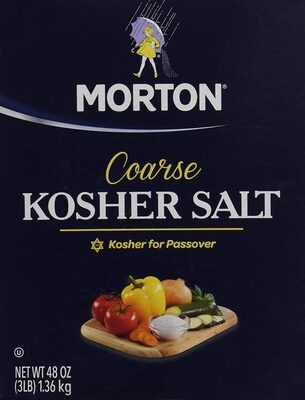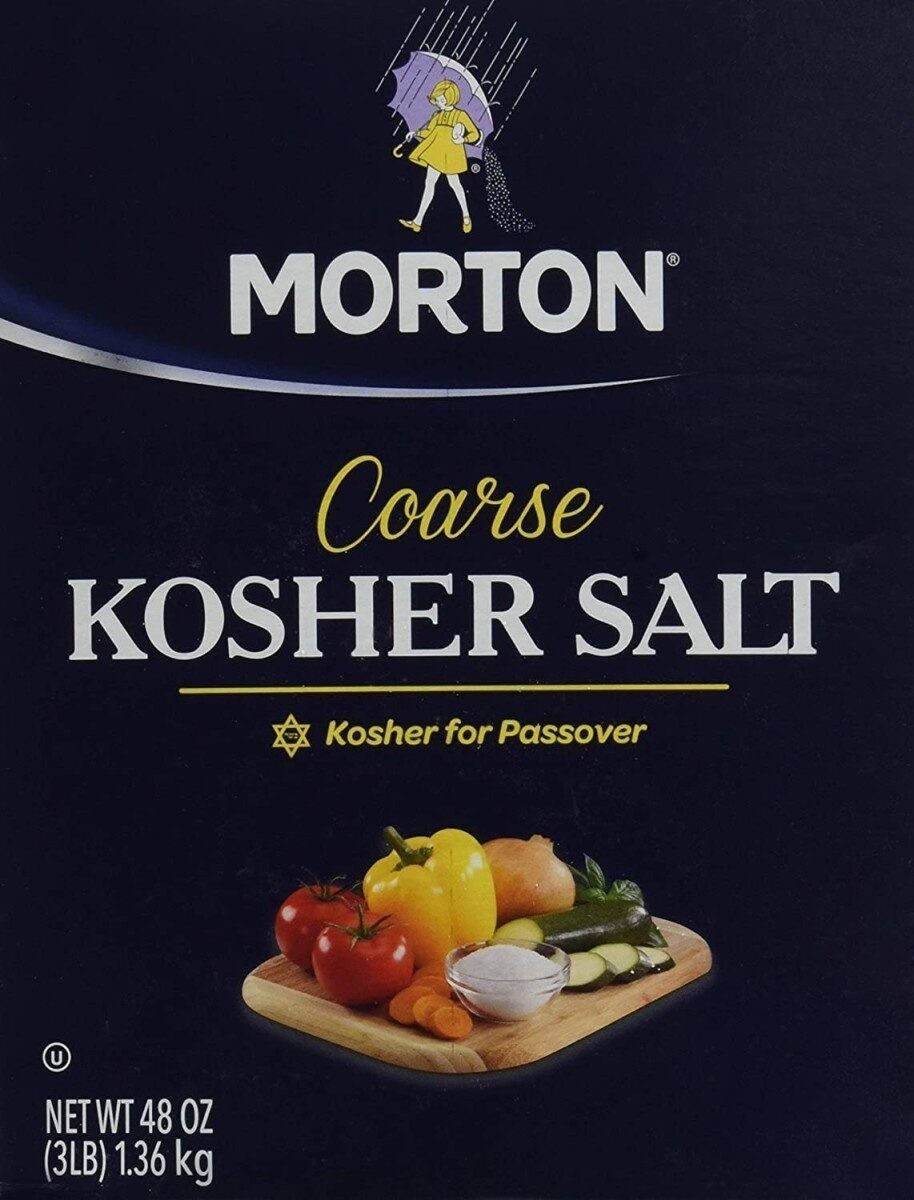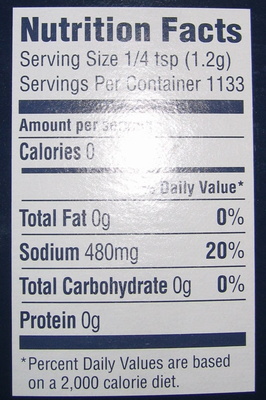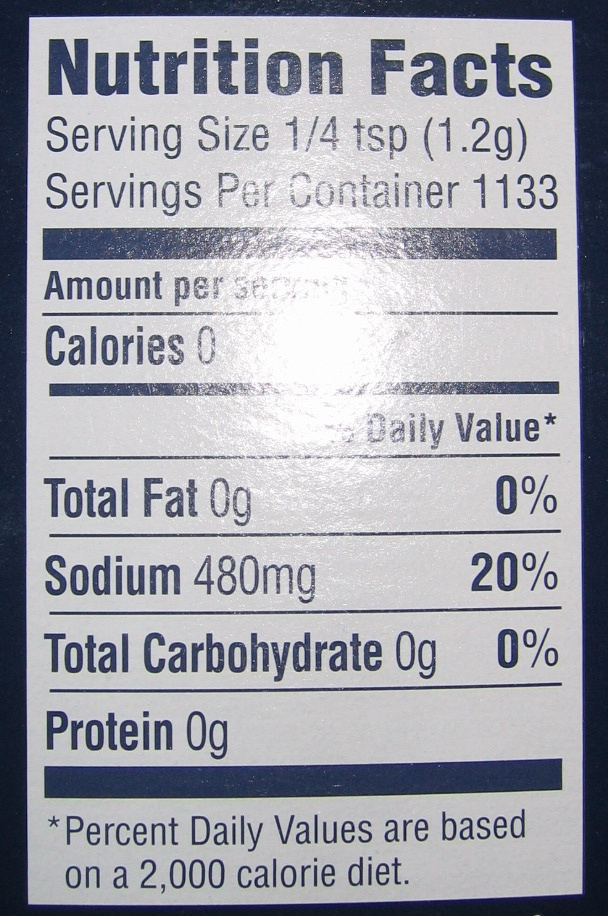Kosher salt - Morton - 48 oz
This product page is not complete. You can help to complete it by editing it and adding more data from the photos we have, or by taking more photos using the app for Android or iPhone/iPad. Thank you!
×
Barcode: 0024600017008 (EAN / EAN-13) 024600017008 (UPC / UPC-A)
Quantity: 48 oz
Brands: Morton
Brand owner: Morton Salt, Inc.
Categories: Condiments, Salts, Groceries
Labels, certifications, awards:
Kosher, Orthodox Union Kosher
Origin of ingredients: Canada
Link to the product page on the official site of the producer: http://www.mortonsalt.com/for-your-home/...
Countries where sold: United States
Matching with your preferences
Environment
Carbon footprint
Packaging
Transportation
Report a problem
Data sources
Product added on by kp757
Last edit of product page on by kiliweb.
Product page also edited by inf, org-database-usda, packbot, upcbot, yuka.K5xSP4_ROfcZLcHciLlq7GWWF8DcGc5JR3cPoQ, yuka.sY2b0xO6T85zoF3NwEKvlhFYD93ymSP8G0fug2CJ4uzUK4O0TftO56TwNKs, yuka.sY2b0xO6T85zoF3NwEKvlkMdfYT9vxPhMD7ttResye7WNIXWP9Up24_0Aqs.









